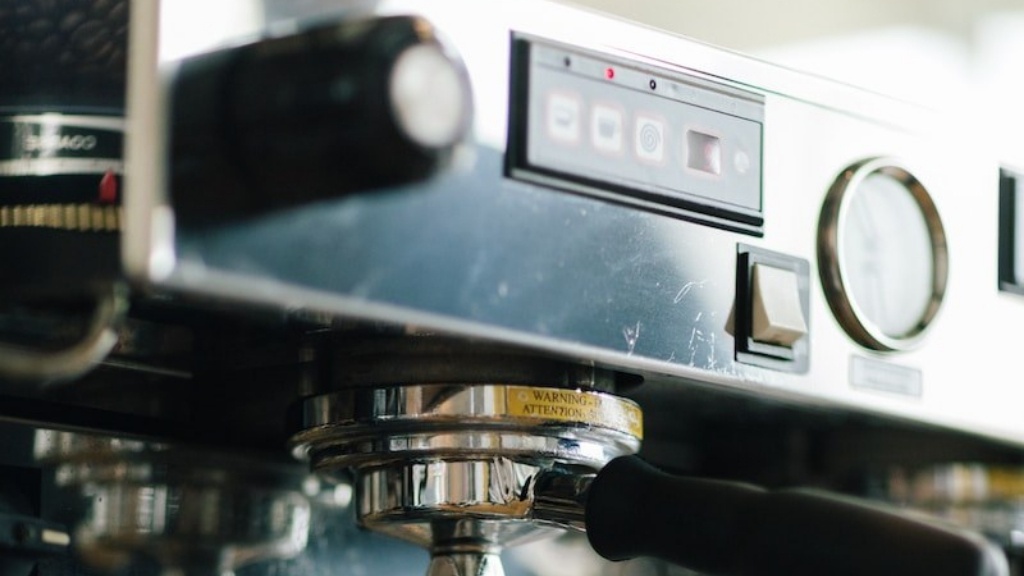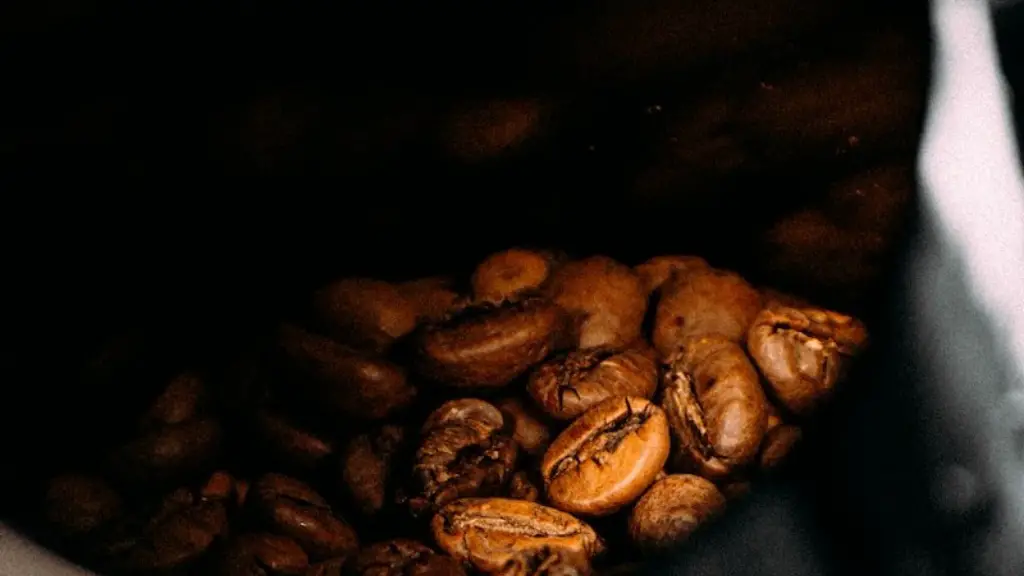Pros and Cons of Drinking Coffee While Breastfeeding
The choice of drinking coffee while breastfeeding is a commonly debated topic. Many have argued that the caffeine content in coffee can interfere with the nursing elements, while others state that it is safe when consumed in limited amounts. Still, the opinion of experts must be weighed before deciding whether to consume or avoid coffee while breastfeeding.
Caffeine is absorbed directly into the bloodstream while drinking coffee, the effects are felt more quickly than other sources of caffeine. It passes through the placental barrier, a membrane where the pregnant body is connected to the fetus, which can be transited to the bloodstream of the nursing baby. Since higher doses of caffeine might be harmful to newborns and babies, the amount of coffee consumed while breastfeeding should be regulated.
In contrast to the expectations, there are also indications that suggest that drinking coffee while breastfeeding can have advantages. Research published in the journal “Pediatrics” concluded that when mothers included caffeine in their diet, it led to an increase in the volume and frequency of breastfeeding sessions for both mother and child. This means that caffeine may have a stimulating effect on the baby. However, it is necessary to consider the exact amounts as excessive consumption of coffee may reduce feeding and cause discomfort in babies.
How Much Coffee is Too Much During Breastfeeding?
According to the American Academy of Pediatrics, it is not recommended for breastfeeding mothers to exceed 300 milligrams of coffee per day, corresponding to two and a half cups of espresso. This amount of coffee should not be a problem if a nursing mother is aware of how to control their coffee intake. On the other hand, health risks can arise when coffee consumption exceeds the recommended amount, such as restlessness, increased irritability, and insomnia in newborns. All of which can represent a genetic or psychological problem, not just a nutrition issue.
In addition to that, coffee is not the only source of caffeine to consider. Mothers should also be aware of the quantity of foods, drinks and medications that contain caffeine, such as cola and energy drinks. Even the slightest trace of caffeine in energy bars or chocolate can increase the risk of caffeine absorption in the nursing baby.
Still, other experts claim that caffeine can help in reducing the stress of motherhood and increase the energy level. As long as the recommended amount is respected, caffeine can be a useful auxiliary.
When is Drinking Coffee while Breastfeeding Beneficial?
It is important to note that coffee has many benefits when consumed in moderation, such as delaying the onset of fatigue, depression and feeling sleepy. For this reason, many professionals advise that mothers can drink coffee to increase their energy and improve alertness, but should always try to keep their caffeine intake under control. If a mother notices any change in the behavior of her baby, such as being more active than usual, it is better to reduce the amount of coffee consumption.
In the same way, the benefits of coffee consumption should be weighed against the risks of too much caffeine, both for the mother and for the baby. The World Health Organisation has recommended that breastfeeding mothers wait at least one hour after consuming coffee with a high caffeine content (including tea and soft drinks) to reduce the risk of transferring caffeine to the baby.
How to Identify Intolerance to Coffee during Breastfeeding?
On the other hand, breastfeeding mothers should be aware of the potential adverse effects that coffee may have on their babies. For instance, vomiting and acid reflux may be caused by an intolerance to caffeine. Additionally, some babies may be sensitive to coffee, and mothers should observe the behavior of their babies to identify any reaction to caffeine.
The most common symptoms of caffeine intolerance are sleeping disorders, restlessness, and irritability. Mothers should take action to alleviate the symptoms and reduce the amount of coffee consumed before breastfeeding. In some cases, a diet with as little caffeine as possible might be necessary to reduce the primary adverse effects.
Conclusion
The decision to drink coffee when breastfeeding is a personal one, and there are both risks and benefits that should be considered before making a decision. From the perspective of experts, it is considered safe to consume up to two and a half cups of espresso per day, and mothers should monitor any signs of intolerance in their babies. Ultimately, the best approach is to decrease or eliminate coffee consumption if there are any adverse effects.
Alternatives to Coffee during Breastfeeding
For those seeking alternatives to coffee while breastfeeding, there are many healthy and caffeine-free options available. Apart from herbal teas, such as chamomile or mint, milk is an excellent source of iron, vitamins and minerals and can help keep the mother energised throughout the day. For a more delicious option, smoothies are an ideal choice to incorporate beneficial nutrients while still getting an energy boost. Finally, eating healthy and well-balanced meals can also be a good way to get all the necessary nutrients to keep the body energised.
Benefits of Drinking in Moderation While Breastfeeding
Although coffee may not be completely cut out of the diet, consuming it in moderation can have numerous benefits for both the mother and baby. For instance, moderate amounts of coffee might increase alertness, improve concentration and help the mother be more productive. Caffeine can also increase the production of milk and improve the taste, making breastfeeding more pleasant for both the mother and baby.
Indeed, moderate amounts of coffee can generally be beneficial during breastfeeding, while allowing the nursing mother to enjoy her favourite cup of espresso. In this sense, the opinion of experts has a major role to play in making an informed decision as to whether it is appropriate to include coffee in the daily diet of breastfeeding mothers.
Risks of Excessive Caffeine Intake while Breastfeeding
Although limited amounts of coffee are considered safe while breastfeeding, it is important to keep in mind that the stimulating effects of caffeine can still pose a risk for newborns and babies. Drinking more than three cups of coffee per day may lead to agitation, restlessness, stomach discomfort, and even difficult to treat sleeping disorders. Thus, it is generally recommended to keep caffeine intake under control and reduce the amount of coffee consumed if any adverse effects are noticed.
Moreover, some caffeinated beverages may have a higher caffeine content than an average cup of coffee. Energy drinks, for instance, contain up to five times the amount of caffeine found in coffee, and should be avoided altogether for breastfeeding mothers. In addition to that, medical conditions such as gestational diabetes may increase the chances of caffeine adverse effects, and doctors may prescribe medication with a high caffeine content during pregnancy. Consequently, it is essential to consult a doctor before making any abrupt changes to the diet.
Foods that are Better than Coffee while Breastfeeding
There are also foods that can help to reduce the amount of coffee consumed while still providing energy boosts. For instance, eggs are a good source of protein and energy, and can be incorporated into breakfast for an energy boost without the adverse effects of caffeine. Additionally, whole grains and nuts are an excellent source of carbohydrates that can fuel the body with the necessary boost of energy. Finally, fruits are a great source of vitamins and minerals, and can be easily integrated into smoothies, yogurts, or drinks.
Smoothies as an Alternative to Coffee while Breastfeeding
Smoothies can also be a viable alternative to coffee while breastfeeding while providing the necessary nutrients and energy boost. For instance, combining banana, greek yogurt, almond butter, and chia seeds can result in a smoothie that provides a good balance of protein, carbohydrates, and healthy fats. Additionally, adding other sources of vitamins and minerals, for instance spinach and avocado, can result in an even more balanced nutritional profile.
Moreover, breastfeeding mothers might also consider adding some healthy fats to the diet, such as olive oil, avocado, or nuts. These can help to keep the body energised without the need for additional caffeine and with fewer risks for the baby.
The Adverse Effects of Caffeine on Breastfeeding Babies
In conclusion, drinking coffee while breastfeeding is generally considered safe in moderation. However, it is important to be aware of the potential adverse effects of caffeine on the baby. For instance, excessive amounts of caffeine can lead to restlessness, agitation, stomach pains and other symptoms in newborns and babies. Therefore, it is important to consider the recommended dosages and monitor the baby’s behavior for any adverse effects before consuming coffee.
In addition, other sources of caffeine, such as tea, energy bars and chocolate, should also be monitored as they can add to the total amount of caffeine consumed in a day. For this purpose, awareness of potential sources of caffeine and the recommended dosages is essential. Ultimately, it is up to the mother to decide whether to consume coffee while breastfeeding and should always keep the baby’s health in check.





